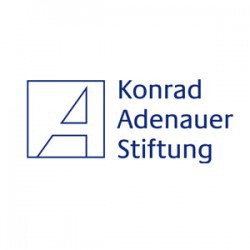Запрошення до участі у програмі Eastern Partnership School Of Excellency
Фонд Кондрада Аденауера запрошує взяти участь у Eastern Partnership School Of Excellency. До участі у програмі запрошуються молоді політики, журналісти, блогери, експерти з неурядових організацій та аналітичних центрів, а також молоді вчені, юристи і представники наукової спільноти з Вірменії, Азербайджану, Білорусії, Грузії, Молдови та України.
Програма розділена на три тематичних модулі:
1.Європейські цінності та їх реалізація в демократичній, конституційній та політичній системі;
2.Міжнародні відносини та політика безпеки;
3.Економічні системи та політики.
Витрати на виготовлення візи, проїзд, проживання та харчування покриваються приймаючою стороною. Подаватись можуть кандидати, що не досягли 35 років з хорошим рівнем знання аглійської мови.
З програмою можна ознайомитися нижче. Заповнити аплікаційну форму можна за посиланням.
Деллайн подачі заявки – 15 вересня 2016 року.
KAS EASTERN PARTNERSHIP
SCHOOL OF EXCELLENCY
Call for applications
A programme for young leaders from politics, law, civil society, media,
economy and science from the countries of the Eastern Partnership and
Russia
With its new Excellence Programme for young talents from politics, law, civil society, media, economy and science from the Eastern Partnership and Russia, the Konrad Adenauer Stiftung aims to further the European idea and democratic values through the facilitation of a new generation of elite leaders and future propagators. We are looking for the future elites who wish to actively champion for their country within the European context and who have already proven their past engagement in this area.
Participation requirements:
The programme is aimed at about 100 up-and-coming politicians, journalists/bloggers, experts from non-government organisations and think tanks, as well as young academics, legal experts and members of the scientific community from the countries of the Eastern Partnership who meet the following participation requirements:
- Citizens of Armenia, Azerbaijan, Belarus, Georgia, Moldova, Russia and
Ukraine; - Maximum age: 35;
- Minimum of a Bachelor’s degree;
- Proven activity within a political youth organisation, NGO, foundation or scientific institution / other sociopolitical engagement;
- Command of the English language (at least at level B2, verified through individual Skype interviews);
- Willingness to participate in multiple seminars in various countries over a three year period (about 4 three day seminars per year in Chișinãu, Kiev, Vilnius and other locations.)
The novelty of our excellency programme lies in our aim to connect the future elite from the various countries of the Eastern Partnership and Russia with one another in order to consolidate regional exchange. Furthermore, the areas of politics, law, civil society, media, economics and science are not addressed separately. This is based on the understanding that a co-operation between parties, companies, journalists, non-government organisations and the academic world is essential in the current shaping of reforms.
Expenses
The Konrad-Adenauer-Stiftung takes over all visa, travel, accommodation and catering expenses for the individual seminars.
Programme Goals
- Systematic and substantial intermediation of knowledge and expertise within the focal themes of European values and their realisation in the democratic constitutional political system, international relations and security policies as well as economic systems and policies in Europe;
- Identification and promotion of excellent junior talent who are well suited to be propagators for the European idea and democratic values and who share the values of the Konrad-Adenauer-Stiftung;
- Development of a stable network of European-minded up-and-coming talent in the countries of the Eastern Partnership and Russia who communicate among one another, hold on to the best practices and exchange information with each other when compiling analyses and projects and when designing and implementing reform proposals.
Programme Structure
The Programme is divided into three modules relating to the above focal themes (European values and their realisation in the democratic constitutional political system, international relations and security policy, economic systems and policies), in order to allow for a targeted transfer of knowledge and expertise.
All participants take part in a basic module with the following contents:
- Fundamental features of democracy and constitutionality;
- Leadership skills and organisational structure;
- Political communication and transparency;
- Project management.
Mutual components of the programme, among others:
- Fundamental features of democracy and constitutionality;
- Leadership skills and organisational structure;
- Political communication and transparency;
- Project management.
The participants can choose one of the following three specialisation subjects within the programme:
(i) Group European values and their realisation in the democratic
constitutional political system:
- Institutional structure of the European Union;
- The European Union as an international agent;
- Prerequisites for the realisation of the acquis communautaire in national law and national politics;
- Constitutionality in the European Union;
- European legislative processes as a result of a co-operation between politics, civil society, and economy. Lobbyism;
- Legal sources of the EU and its relationship with national law and public international law.
(ii) Group International Relations and security policy:
- Institutional structure and role of the NATO as an agent of security policy;
- Securitisation: a challenge for the democratic values?;
- The foreign policy of the EU in a geopolitical context;
- Conflict prevention in a regional context;
- Challenges of international law in light of recent developments.
(iii) Group Economic systems and policies in Europe:
- The social market economy as a superior economic principle of the EU;
- Economic integration: prerequisites, execution (stages, instruments), challenges and effects;
- Economic policy and constitutionality;
- Relationships between the EU and the Eurasian Union – challenges and potential from an economic perspective;
- Fiscal and economic reform approaches and best practices;
- Economic challenges in the context of the association Agreements with the EU.
The seminars consist of shared blocks as well as presentations and exercises aimed at the specific needs of the respective groups. The working language of the programme is English. The participants will receive introductory literature before the seminars and are obligated to prepare their own contributions to the seminars.


